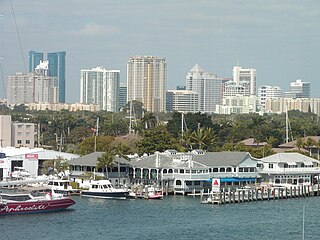You have gone through all the stress and heartache of a foreclosure proceeding on your Florida condominium. Maybe you’re a Florida resident who lost their home to the bank. You could be a snowbird or an out of state investor who was sued for foreclosure by your lender. As an owner, you’ve seen your credit rating get hit with a foreclosure notification and you’ve gone through the practical process of moving your stuff out and saying goodbye to that beautiful oceanfront balcony view.
For many Florida condo owners who have gone through foreclosure, they may think that the worst is over. Now they can rebuild and move on. Thing is, they’re wrong. They’re still on the hook for their past due condo assessments.
Did You Receive a Letter From a Lawyer?
The first that these condo owners may know of this continuing nightmare is a formal notice letter that they get in the mail. Usually certified mail, return receipt requested, so the sender can have proof of receipt.
In that letter, they’ll be notified — usually by a Florida law firm — that they are responsible for paying the assessments that had accumulated and were due and owing on the condo up to the date of the foreclosure judgment being signed by the judge. Sometimes, the total due and owing can be thousands of dollars.
The letter will include a deadline for payment. It will include instructions on how to make payment. It will probably offer a payment plan opportunity if you want to try and negotiate one. And it will include an official notice that the letter is being sent pursuant to the Florida Fair Debt Collection Act.
Florida Statute 718.116 and the Condominium Documents
Both Florida statutes as well as the individual condominium documents apply to this situation.
1. Florida Condominium Act
Pursuant to Florida law, specifically Florida Statute 718.116(1), all condominium owners are legally responsible for paying the assessments on their condos from the time that they take ownership of the unit through the last day that they hold legal title to it. The statute states:
A unit owner, regardless of how his or her title has been acquired, including by purchase at a foreclosure sale or by deed in lieu of foreclosure, is liable for all assessments which come due while he or she is the unit owner. Additionally, a unit owner is jointly and severally liable with the previous owner for all unpaid assessments that came due up to the time of transfer of title. This liability is without prejudice to any right the owner may have to recover from the previous owner the amounts paid by the owner.
(b)1. The liability of a first mortgagee or its successor or assignees who acquire title to a unit by foreclosure or by deed in lieu of foreclosure for the unpaid assessments that became due before the mortgagee’s acquisition of title is limited to the lesser of:
a. The unit’s unpaid common expenses and regular periodic assessments which accrued or came due during the 12 months immediately preceding the acquisition of title and for which payment in full has not been received by the association; or
b. One percent of the original mortgage debt. The provisions of this paragraph apply only if the first mortgagee joined the association as a defendant in the foreclosure action. Joinder of the association is not required if, on the date the complaint is filed, the association was dissolved or did not maintain an office or agent for service of process at a location which was known to or reasonably discoverable by the mortgagee.
2. Condominium Documents
The unit owner will also find language within the Condominium Documents (e.g., Declaration) that will apply to these unpaid assessments. There, language regarding interest that will accrue on unpaid assessments, as well as liability for paying any court costs and legal fees expended to collect these assessments will be detailed.
Here, the condo owner agreed to be bound by these terms when they signed to purchase the condominium unit. These are contractual obligations that survive the foreclosure.
Some Florida Condo Associations Need Cash!
All too often, Florida Condominium Associations are facing a tough time trying to meet their financial responsibilities of upkeep and maintenance of the property because of a drop-off in assessment revenue due to foreclosures upon condo units and non-payment of assessments. The Condo Association will itself be liable to the unit owners for failure to meet its obligations. The Condo Board members may face allegations of breach of fiduciary duty if the obligations toward the common elements aren’t met.
Under Florida law, each condo owner is responsible for paying “…their share of the funds which are required for the payment of common expenses, which from time to time is assessed against the unit owner.” Florida Statute 718.103.
Florida condo owners that have been foreclosed upon need to know that they’re still facing the wrath of their old Condo Association, who is willing to hire legal counsel and pursue those unpaid assessments. Their collection efforts can include a new lawsuit different from the foreclosure lawsuit filed by the bank when they took title to the unit.
If successful, the Condo Association may be able to obtain a civil court judgment allowing them to proceed against the condo owner’s property for payment (including their attorneys’ fees and costs), leaving the condo owner’s stocks, bonds, and other non-exempt property vulnerable to being taken in order to pay off the second judgment.
Be aware, condo owners! And if you get one of these collection letters, don’t ignore it. Contact a Florida condo lawyer for guidance.

Do you have questions or comments? Then please feel free to Chat with Larry in the comments below, at info@hallandalelaw.com, or (954) 458-8655. If you have a specific or personal situation, please call or email Larry because he can’t answer specific fact questions in general comments.


